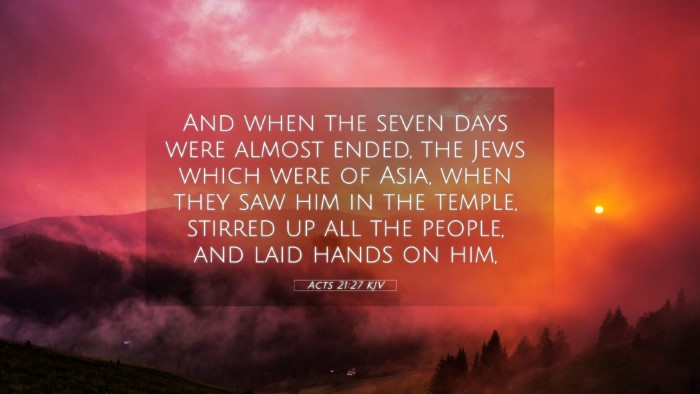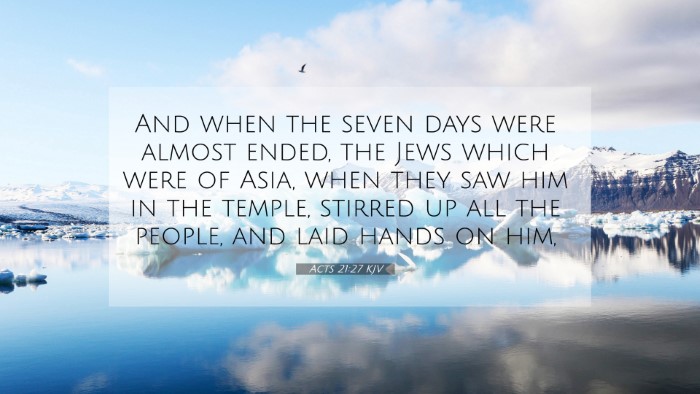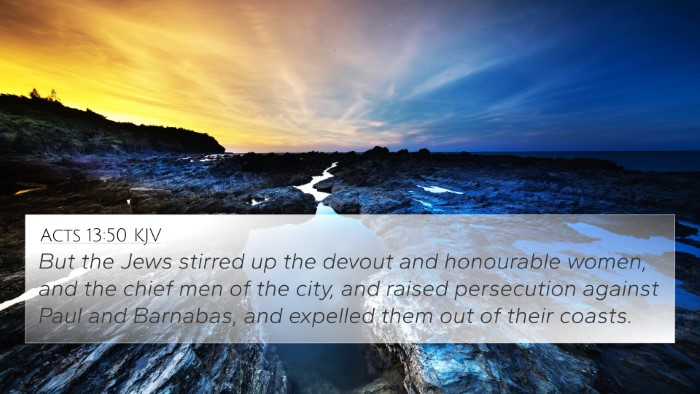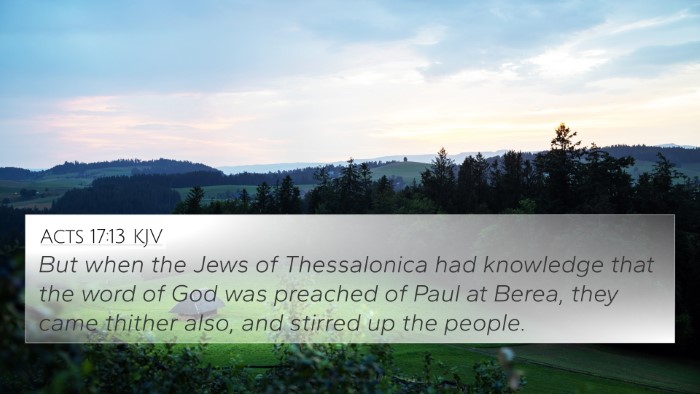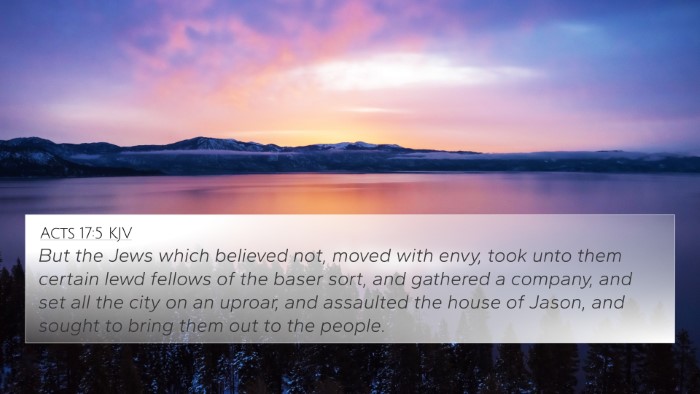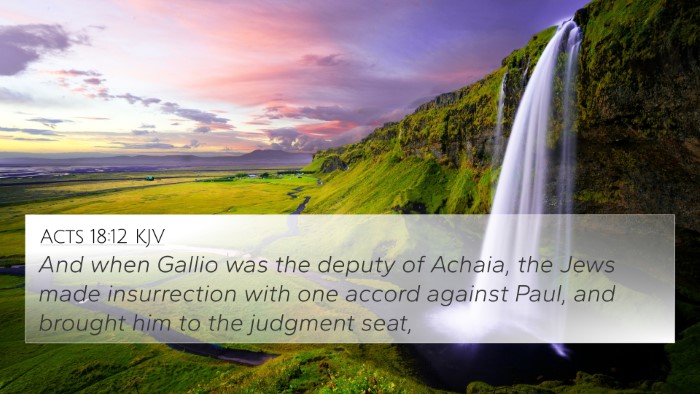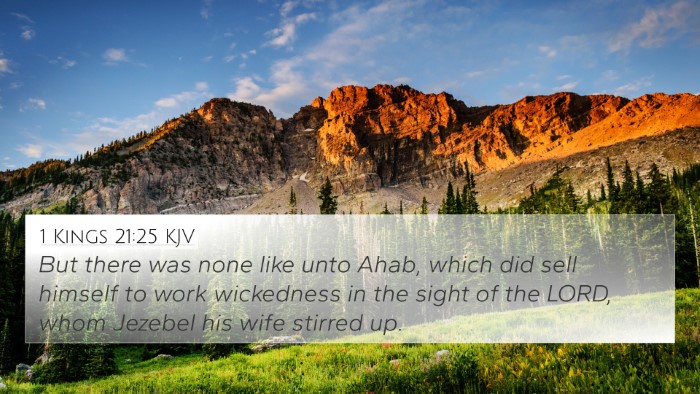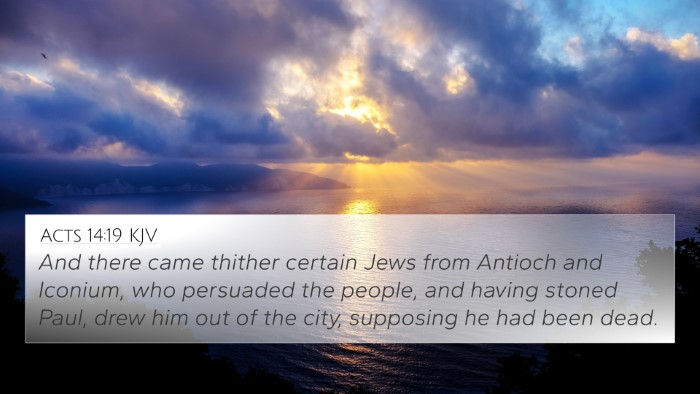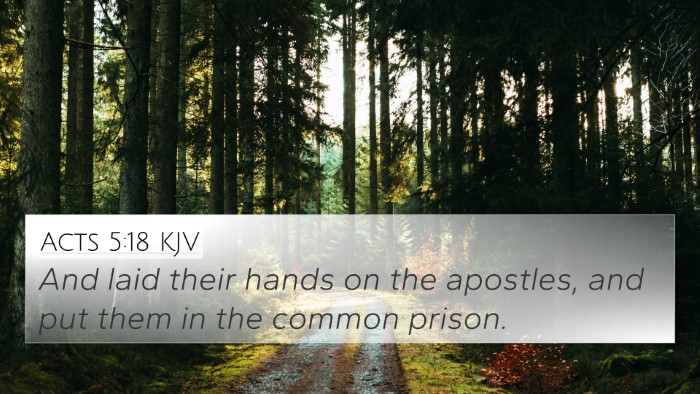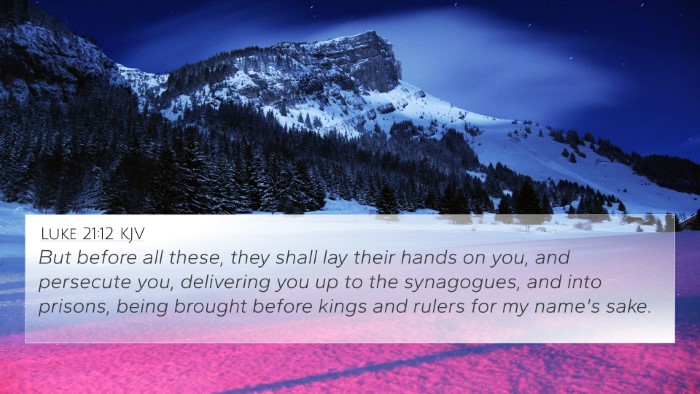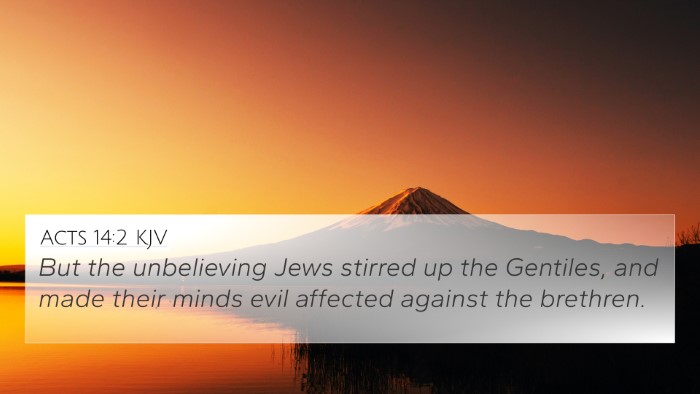Understanding Acts 21:27
The verse Acts 21:27 states:
"And when the seven days were almost ended, the Jews which were of Asia, when they saw him in the temple, stirred up all the people, and laid hands on him."
Summary and Interpretation
This verse occurs during a pivotal moment in the book of Acts, where Paul is in Jerusalem and is accused by local Jews of bringing Gentiles into the temple, an act considered blasphemous. The context surrounding this verse indicates a rising tension between Paul and the Jewish authorities.
Here’s a breakdown of insights gleaned from several public domain commentaries:
Matthew Henry's Commentary
Matthew Henry emphasizes the hostility faced by Paul during his final journey to Jerusalem. The agitation of the Jews from Asia Act, who had come to take their grievances against Paul, highlights the continued resistance to the gospel’s advance. Henry notes that this incident underlines the dangers of prejudice and alarm based on misinformation.
Albert Barnes' Notes on the Bible
Albert Barnes focuses on the roles of the Asian Jews, asserting they stirred the crowd by exploiting emotions rather than truth, suggesting their actions were perhaps motivated by jealousy and anger rather than genuine religious concern. This action marks a crucial turning point, leading to Paul's subsequent arrest and eventual appeals to Rome.
Adam Clarke's Commentary
Clarke explains that the presence of Paul in the temple was misconstrued and thus used as a catalyst for conflict. He points out that this accusation was part of a larger pattern of opposition faced by Paul, serving to illustrate the implications for early Christians and their mission amidst significant opposition.
Connections to Other Bible Verses
Acts 21:27 is not only notable within its immediate context but also connects with several other scriptures. Here are some related verses that enhance the understanding of this passage:
- Acts 22:22-29 - Paul’s defense before the crowd, showcasing the depth of misunderstanding and accusations he faced.
- Acts 16:20-21 - The accusations against Paul and Silas in Philippi illustrate similar hostility towards the apostles.
- Matthew 10:17-18 - Jesus warns his followers of persecution, which foreshadows Paul’s experiences in Jerusalem.
- John 16:2 - Jesus speaks of those who will put His followers out of the synagogues, indicating the social ramifications of faith.
- Acts 24:5-6 - Paul is labeled as a pestilent fellow, connecting to the accusation found in Acts 21.
- Galatians 5:11 - Paul discusses the stumbling block of the cross, which aligns with the Jewish opposition to his teaching.
- Romans 11:8-10 - Paul references Israel’s blindness to their Messiah, paralleling the Jews' reactions noted in Acts 21.
- 1 Thessalonians 2:14-16 - Discusses persecution faced by early Christians, linking to the trials Paul faced.
- Philippians 3:5-6 - Paul’s background as a Jew is often juxtaposed with the accusations, showcasing the irony of his transformation.
- John 15:20 - The servant is not greater than the master; thus, the suffering and persecution of Paul embody the truth of Jesus's words.
Thematic Bible Verse Connections
Acts 21:27 invites a thematic exploration of persecution, prejudice, and the challenges faced by evangelists. It represents a crucial aspect of the Christian mission—facing opposition while spreading the Gospel. This theme is echoed throughout the New Testament and resonates with various Old Testament precedents of prophetic struggle in the face of societal opposition.
Cross-Referencing Biblical Texts
Cross-referencing can significantly enhance the understanding of scripture. Biblical scholars often utilize a structured Bible cross-reference system to draw parallels and elucidate connections between separate passages, thereby enriching the interpretive experience. Tools such as a Bible concordance or a Bible cross-reference guide are invaluable for deeper studies.
How to Use Bible Cross-References
Engaging with cross-references can illuminate relationships between verses and themes:
- Identify themes in the primary passage and seek verses that resonate with similar ideas.
- Look at the context of each reference to draw cohesive insights pertinent to the narrative and theological framework.
- Utilize a Bible reference resource or Bible chain references to streamline the process of cross-referencing.
Conclusion
Acts 21:27 serves as a crucial reminder of the challenges faced by early Christians and continues to resonate with believers today. The interplay of various scripture strengthens our understanding of God's plan and the unwavering boldness required to proclaim the Gospel amid opposition. This practice of cross-referencing scriptures not only enriches our comprehension of specific verses but also enhances the overall tapestry of biblical truths.

